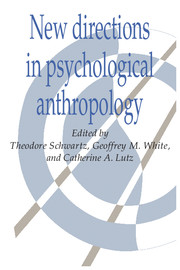Book contents
- Frontmatter
- Contents
- List of contributors
- Introduction
- I Cognition and social selves
- II Learning to be human
- III The body's person
- IV Psychiatry and its contexts
- V Psychoanalytic approaches
- 12 Is psychoanalysis relevant for anthropology?
- 13 Intent and meaning in psychoanalysis and cultural study
- 14 Some thoughts on hermeneutics and psychoanalytic anthropology
- VI Disciplinary perspectives
- Index
14 - Some thoughts on hermeneutics and psychoanalytic anthropology
Published online by Cambridge University Press: 05 June 2012
- Frontmatter
- Contents
- List of contributors
- Introduction
- I Cognition and social selves
- II Learning to be human
- III The body's person
- IV Psychiatry and its contexts
- V Psychoanalytic approaches
- 12 Is psychoanalysis relevant for anthropology?
- 13 Intent and meaning in psychoanalysis and cultural study
- 14 Some thoughts on hermeneutics and psychoanalytic anthropology
- VI Disciplinary perspectives
- Index
Summary
Let me begin with the juxtaposition of our two disciplines: anthropology and psychoanalysis. Though both anthropology and psychoanalysis are considered to be part of the sciences of man, and therein differentiated on the basis of their purview, they differ less in terms of their purviews than in terms of their structure as disciplines. Psychoanalysis has what can be called a theological structure. It has a privileged body of texts – the Freudian corpus – that determine its parameters, ground its practice (whether understood as therapy or research), and give full stop to what might otherwise be an infinite interpretive regress. There are also secondary and tertiary texts of varying authority that may elaborate the primary corpus (within limits that are never so fully elaborated as to avoid some negotiation) but ultimate intra- and extra-textual authority lies with the primary texts. Too great a deviation from what is deemed to be the content or meaning of these primary texts can and usually does lead to denunciation, heresy, and excommunication. There are institutions that support the structure of the discipline by providing initiatory procedures, standards of membership, channels of publication, a tribunal, and, as in the case of the expulsion of Jacques Lacan from the International Association of Psycho-Analysis on the grounds that his Institute did not provide appropriate training for its candidates, procedures for excommunication. Heretical groups have tended to replicate this institutional structure, and rarely have ecumenical movements succeeded in mending breaches.
- Type
- Chapter
- Information
- New Directions in Psychological Anthropology , pp. 294 - 308Publisher: Cambridge University PressPrint publication year: 1993



